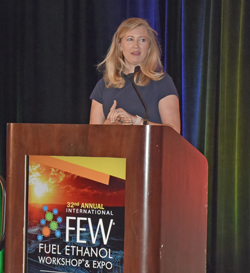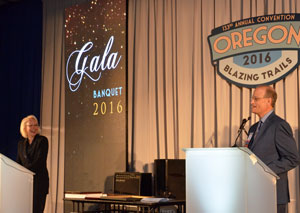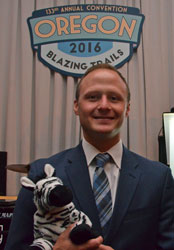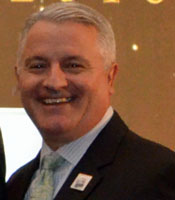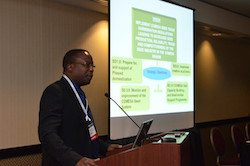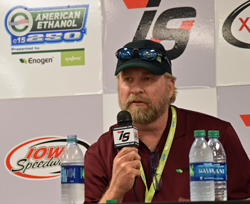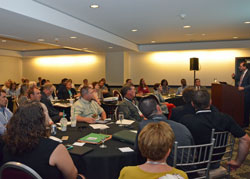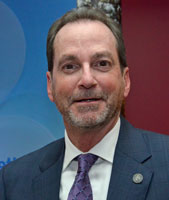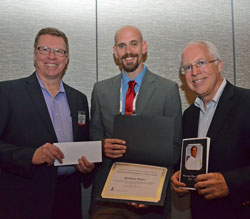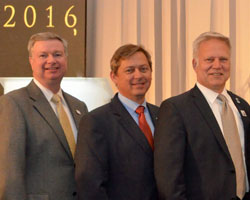
LtoR: ASTA officers Jerry Flint, DuPont Pioneer; Tracy Tally, Justin Seeds; Mark Herrmann, AgReliant Genetics
Among all the seminars and committee meetings of the American Seed Trade Association’s annual meeting one of the most important items of business was the election of the officer team for the coming year. They are:
• Chair: Mark Herrmann, AgReliant Genetics
• First Vice Chair: Tracy Tally, Justin Seeds
• Second Vice Chair: Jerry Flint, DuPont Pioneer
The 2016-2017 team will work to move the strategic five year plan forward, which includes advocacy, efficiency of operations, as well as internal and external communications.
“The seed industry today faces both unprecedented challenges and opportunities,” said incoming Chair Mark Herrmann. “Whether it’s the threat of regulatory uncertainty, international issues impacting the movement of seed, or simply a lack of understanding from the public about the importance of the work we do—it’s never been more important that we proactively drive a strong and unified industry to address the issues we will face in the future.”
Herrmann is an Illinois native and first went to work for DEKALB, moving to Monsanto when the company was acquired, and now has made the switch to AgReliant Genetics. He is committed to being the voice of the American seed industry, saying that communication is the clear opportunity for the future. With the disconnect between consumers and those producing food, sharing that message is vital, not just to the seed industry, but to life.
“The continuous advancement in knowledge about how plants function provides information that enables breeders and seed companies opportunities to meet the challenges facing agriculture, and society, today and in the future,” said Herrmann. “Whether a company is on the cutting edge of breeding techniques or they can see them on the horizon, what happens in the coming years will impact us all. There will continue to be challenges and opportunities ahead of and I am confident that ASTA is well positioned to lead the seed industry into the future.”
Listen to Cindy’s interview with Mark here: Interview with incoming ASTA chair, Mark Herrmann
Tracy Tally has been a member of ASTA for a relatively short 8 years, but in that time he’s been much more than a member. He appreciates the opportunities he’s had to stretch beyond his world through his connections in the organization and remembers a key speaker whose message of volunteering struck home.
“Volunteering at this level, on a national level, is just such an honor you just can’t turn it down,” he told AgWired.
You can hear the rest of his interview here: Interview with incoming ASTA first chair, Tracy Tally
2016 ASTA-OSA Annual Meeting photo album
 InterDrone’s debut event in 2015 brought in an impressive 2,797 delegates from 48 nations and returns to Las Vegas Sept. 7-9 in a premier location: The Paris Las Vegas Hotel. The ZimmComm family of agricultural news sites is once again a media sponsor and wanted to share how this year’s event will top the debut just a year ago.
InterDrone’s debut event in 2015 brought in an impressive 2,797 delegates from 48 nations and returns to Las Vegas Sept. 7-9 in a premier location: The Paris Las Vegas Hotel. The ZimmComm family of agricultural news sites is once again a media sponsor and wanted to share how this year’s event will top the debut just a year ago.

